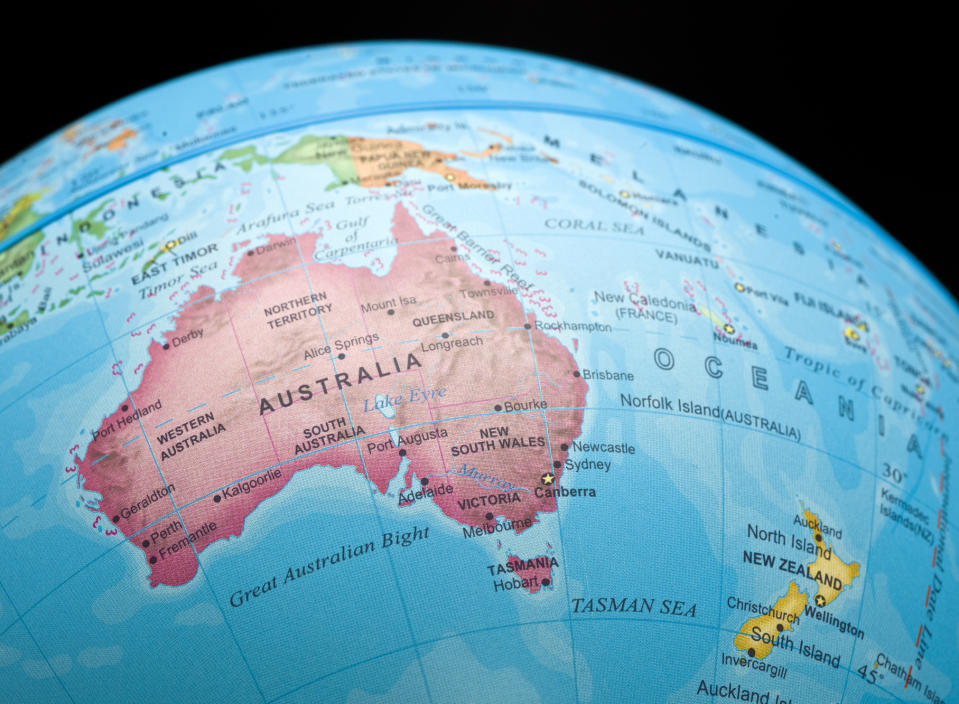May 31: The day we see if Australia will suffer worse than a recession

There’s been a lot of recession talk in the media recently. Heck I’ve written a few columns on it myself both last year and this year.
I’ve always maintained that it’s better to talk about it ahead of time to, firstly, understand what it is, which makes it easier to manage, and, secondly, because after the fact, when it’s usually announced, it’s kind of useless information isn’t it? … unless of course you’re still in a recession.
The word from the international ratings agencies and Treasury is that the economy is going to hit an almighty speed bump.
More from Dave Taylor: What could be worse than a recession? We could be about to find out
More from Dave Taylor: This algorithm predicts who will win the US election – so who is it?
More from Dave Taylor: ‘Pick a footy team’: Is this the silver bullet to landing your dream job?
AMP Capital’s Head of Investment Strategy Shane Oliver has been one of the first high-profile economists though to actually forecast a recession in his weekly note.
“We are now forecasting two negative quarters in a row in Australia. Unfortunately, this would mark the first recession since the early 1990s,” Dr Oliver wrote.
Bloomberg Economics is now also saying, “Australian Economy Headed for Recession.”
Case for a recession
The reasons policy makers and economists give for saying we could be in a recession now, or that a recession is likely to hit, are obvious.
The patch-up job for the global financial crisis involved flooding the world’s economies with cheap money. Far from encouraging shoppers to spend, it led to share and property market bubbles.
It’s also flooded the corporate sector with debt.
Now investors are paying the price as share markets collapse.
Indeed all share markets needed was one heck of a scare, and you betcha that’s what they got.
The threat of the coronavirus threatens to disrupt economic activity across the board. From airlines, to tourism, higher education, the healthcare sector, and retail… just about every sector of the economy is in the firing line.
Governments and policy makers are doing their best to both calm markets, and the wider population, by throwing money at the problem and reassuring businesses help is on the way, but restoring confidence is the key – and that’s an enormous challenge.
Under the pump
It’s increasingly likely that the virus threat will take months to ultimate subside and that has the potential to cause enormous economic disruption. Indeed there already has been disruption.
Some analysts I’ve spoken to say the hit to sales for companies in the direct firing line is between 40 and 90 per cent.
So, we’re talking a huge hit to growth and rising unemployment, not to mention the damage to superannuation accounts (which kills spending for anyone over the age of 55).
How long have we got until it becomes a problem potentially worse than the global financial crisis? Several economists I’ve spoken to say the deadline is the end of May.
Once we hit June, and the virus is still uncontained, then we’re… well I won’t use the expletive one analyst use to describe what that would do to the economy.
Is it all bad?
As always though, there’s a silver lining.
Any stock market analyst worth her salt will tell you that the stock market will ultimately recover, and superannuation balances will rebound.
The government is also putting measures in place to ensure that when economic growth kicks in again there will be new jobs ready to go.
As for the value of your house? Well interest rates don’t look to be going up anytime soon, so that’s a positive. On the flipside though, if unemployment rises, and folks default on their mortgages, forced sales could see property prices correct (fall heavily) again.
Petrol could also become A LOT cheaper – think well under $1 a litre. This week’s oil price crash will make certain of that.
If you can hold onto your job, and you own a home, hopefully, your cost of living will come down and you’ll be able to pay off the mortgage more quickly.
Unfortunately for those in insecure work, the times ahead could be challenging.
There will likely be some difficult times ahead. How long those difficult times last will depend on how long the virus threat hangs around, and how effective the economic policies that are being formulated now are going to be.
Like the bushfires and the drought, some, not all by any means, but some are now starting to recover.
The same will be true on the “other side”, as the Prime Minister puts it, of the coronavirus. We just need to get there.
@DaveTaylorNews
Make your money work with Yahoo Finance’s daily newsletter. Sign up here and stay on top of the latest money, news and tech news.
Follow Yahoo Finance Australia on Facebook, Twitter, Instagram and LinkedIn.

 Yahoo Finance
Yahoo Finance 